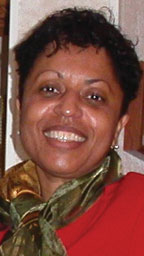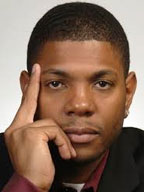
By Ginette Curry, Ph.D.
Hold fast to dreams
For if dreams die
Life is a broken winged bird
That cannot fly
(Langston Hughes’ “Dreams”)
During the beginning of my teaching career at Cheikh Anta Diop University in Dakar, Senegal (West Africa), I published an article about W.E. DuBois’ acclaimed book The Souls of Black Folk and the African American dream in Bridges, Senegalese Journal of English Studies. My analysis of his book was based on his historical and literary explanation of Black people’s hopes at the beginning of the 20th century.
As a student of Black literature in Europe (France) and long before I came to America for the first time, W. E DuBois appealed to me. He lived and wrote at a time when Black people in America could not fully exercise their rights. Consequently, African Americans were still suffering from the economic and social legacy of slavery. His analysis of their dream was deeply embedded in the concept of “Soul” that was the affirmation of Black people’s spiritual and racial identity. It was also the expression of their rich cultural heritage that had been the object of obliteration during their years of bondage.
The Souls of Black Folk was published in 1903 when many Black people had not acquired material wealth. What struck me is that DuBois was defining the African American dream as being spiritual more than material. He expressed his desire that they should have a loftier dream, not one mimicking the dream of the white majority. He warned them not to be lured by Mammon, the God of riches: “What if the Negro people be wooed from a strife for righteousness, from a love of knowing, to regard dollars as the be-all and end-all of life? What if to the Mammonism(the greedy pursuit of riches) of America be added the rising mammonism of its half-wakened Black millions?”
I was wondering whether in the 21st century, the African American dream he described has changed or if it has remained the same. I have admired W.E. DuBois’ legacy of scholarship and struggle and the depth of his scholarly works, but is his analysis still relevant today?
Decades later, I find myself living in South Florida wondering whether the African American dream has evolved. My perception of Black people’s lives in America altered dramatically since I changed my residency. Indeed, DuBois is right to acknowledge the fact that most Black people in America have a long legacy of spirituality and that Black religious institutions are the conduit enabling their congregations to articulate their dream. But is this the only criteria by which their progress in America should be measured?
A segment of the Black population in America is still plagued with issues such as police brutality, Black-on-Black crime, low incomes, disenfranchisement and marginalization. Yet, others have experienced substantial progress and economic empowerment in the decades leading up to the 21st century. A study from business historian Robert E. Weems from Wichita State University entitled Resilient, Receptive and Relevant: The African American Consumer (New York: The Nielson Company, 2013) has revealed that in 2013, the African American consumer market went beyond the trillion dollar figure for the first time in history. This economic reality is a far cry from one hundred years ago when social, economic and political reasons such as Jim Crow laws and racial segregation prevented Black people from achieving their economic success.
Despite W. E. DuBois’ affirmation that the Black American dream should be spiritual, most of the time, success is measured in terms of economics. In the United States, the rise of Black American purchasing power was triggered by a number of factors. As Robert Weems points out, the World War I Great Migration from the rural South to the northern cities as well as the second big wave of Black migration during World War II enabled many Blacks to find better jobs in the northern, southern and western cities. Such growing African American urbanization enabled them to increase their political and purchasing power: “While mid-twentieth century American businesses began to recognize the importance of Black dollars, African Americans themselves began to recognize how they could use their collective net income to bring about the dis-mantling of American apartheid” (Weems).
Weems cautions his readers by stating that the increasing buying power of African Americans during the 1960s was a sign of economic progress, but also that period witnessed a “simultaneous decline and disappearance of historic Black-owned enterprises” and “a decline in the infrastructure of urban Black America’s business community.” More and more, African Americans spent their dollars on white-owned corporations rather than Black businesses. Also, more Black people are employed by non-Black corporate America. How should we balance that reality?
Ironically, while the growing income of the vast majority of Black people in urban areas increased, it did not always translate into positive economic activity within Black communities. In addition, as some others integrated predominantly white or mixed neighborhoods, they became consumers more than producers.
On the other hand, I think about the 21st century underprivileged who are disenfranchised. Poor Black people end up being undervalued and do not have access to the same schools, social services and opportunities as the privileged or those who have a higher standard of living. They stagnate in dilapidated neighborhoods or at least the widely-held perception of it and their dream of a better future for themselves, as Langston Hughes put it in his poem “Harlem,” “festers like a sore and runs.”
It is a fact that Black-on-Black crime, police brutality, the lack of adequate health care resources, no jobs, limited access to quality education are plaguing poverty-stricken Black communities in the 21st century. How can this segment of the Black population envision a positive future when so many young Black men are caught in the prison system? The structure of many Black families has been dismantled by many factors in the history of America. How can it be rebuilt when many come from broken families?
I came to the conclusion that in view of the recent issues facing the Black communities, the American dream is still alive but it is not just spiritual. Indeed, religion has worked to enable disadvantaged African Americans to find strength to carry on through their belief in God. Religious officials have used their status to help them obtain a better education, resources, and jobs. So their theology has reinforced the tenets of the dream. They have emphasized virtue, hard work, humility and the deferral of gratification. Also, according to W.E. DuBois, they have helped affirm their identity in opposition to the dominant culture.
Furthermore, the last decades of the 20th century witnessed the emergence of hip hop culture that originated in the Black community of the Bronx, New York (PBS, Birthplace of Hip Hop /http://www.pbs.org/opb/historydetectives/investigation/birthplace-of-hip-hop). Such movement not only quickly impacted millions of consumer fans inside and outside Black communities, but also prompted talented and genuine Black artists to become music moguls overnight. They have become the symbols of the rags to riches story of the American dream. Though corporate interests sometimes made it a form of “Blaxploitation,” the fact is that many Black performers became billionaires, ultimately infiltrating and thus integrating corporate America. Jay Z, one of the most prominent African American rappers of the 21st century, has been influencing countless fans of his generation or younger with his lyrics redefining the American dream. As a hip hop mogul, entrepreneur and musician, he has embodied the post-millennial African American success story. Growing up with no father in the Marcy house projects of Brooklyn, he had a rough beginning. He shot his drug-addicted brother in the shoulder at the age of 12 and dropped out of high school to sell drugs. Now he is worth about $460 million and in 2013, he appeared on the cover of Time Magazine as one More importantly, he represents a larger group of growing wealthy Blacks. Through his lyrics, he has revealed his philosophy about making it in America. For him, success is not for the weak. It demands boldness and taking advantage of every opportunity, not being afraid in dealing with the consequences.
Finally, without better jobs, Black people cannot really achieve their aspirations of prosperity for themselves and their family. In our society, progress can only exist through economic and educational advancement even though religion, spirituality and dreams are still at the center of their hopes for a better economic future. Taking one’s work seriously is a driving factor for success. In his song “Murder to Excellence,” (2011, Watch the Throne), Jay-Z says it best when he compares his career to his religion: “My religion is the beat/My verse is like church/My Jesus piece!” Ironically, those lyrics reflect what DuBois warned us about. Perhaps, his boldest definition of the African American dream is from his album Kingdom Come released in 2006. According to him, it is imperative to be fearless no matter what the consequences are: “I let the wheels give a glimpse of hope of one’s grind/Some said: ‘How you get so fly?’/I said: ‘from not being afraid to fall out the sky’/My physical’s a shell so when I say farewell/My soul will find an even higher plane to dwell/So have no fear, just know that Life is but a beach chair“ (“Beach Chair”).




Be the first to comment